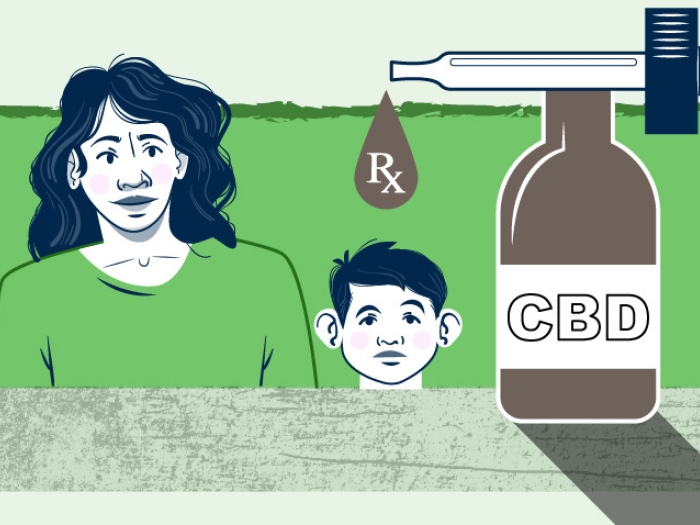Four in five parents say children today aren’t as thankful as they should be, and more than half worry that they overindulge them.
9:37 AM
Author |

As families prepare to celebrate a holiday focused on gratitude, many parents say their children aren't as thankful as they should be.
Four in five parents in a national poll agree that children today are not grateful for what they have, with over half of parents worrying that they're giving their children too much and two in five saying they're even sometimes "embarrassed by how selfish their child acts."
But most parents do in fact want to raise appreciative kids, with three in four saying it's a high priority to teach their children gratitude, according to the C.S. Mott Children's Hospital National Poll on Children's Health at University of Michigan Health.
"Many parents may look back to their own childhood and, in comparison, wonder if they are giving their child too much in the way of material things. Parents may have watched their child behave selfishly, such as refusing to share with other children or saying they don't like a particular gift," said Mott Poll co-director Sarah Clark, M.P.H.
"We know that gratitude is associated with more positive emotions, having strong relationships, enjoying more experiences and even health benefits," she added. "However, gratitude is not something that children usually acquire automatically; it needs to be nurtured, in an age-appropriate way."
The nationally representative poll report was based on responses from parents of children ages 4-10.
"Parents who place a high priority on teaching their child gratitude are more likely to report their children exhibit behaviors associated with thankfulness and a willingness to give to others," Clark said.
Like Podcasts? Add the Michigan Medicine News Break on iTunes, Google Podcasts or anywhere you listen to podcasts.
"While Thanksgiving is a wonderful time to give thanks, parents can teach and model kindness and gratitude throughout the year. Over time and through experiences, children will learn to be grateful for others and appreciate what they have."
Nearly all parents polled agree that it's possible to teach children to be grateful, but they used different strategies.
5 ways parents say they teach their children gratitude
1. Making 'thank you' a regular phrase
Among the most common ways parents say they teach their kids to be appreciative: reminding them to mind their manners. Some 88% of parents regularly have their child say please and thank you, while 11% do this occasionally, and 1% rarely do it.
But children shouldn't just be citing these words on auto pilot without understanding their meaning.
"There's a difference between politeness and gratitude," Clark said. "To help children learn to be grateful, parents also need to emphasize why they're asking their child to say thanks."
This can be as simple as taking the time to say 'thank you for…' with a brief explanation that describes why they're thankful, Clark says.
Birthdays, holidays and other gift-giving events also create an opportunity for parents to encourage children to appreciate both the gift and the giver. But just a fourth of parents say their child makes thank-you cards for gifts regularly while 41% do so occasionally and 34% say it rarely happens.
"Children of all ages can make or write thank-you cards to express their gratitude for a gift. They can share why they appreciate the gift and how they'll use it," Clark said.
2. Talking about gratitude
Taking time to reflect on what family members are grateful for at the dinner table or other times during the day is another way families promote gratitude.

Nearly two thirds of parents say their family has daily conversations about what they're grateful for while about 36% regularly say prayers about what they're thankful for.
"Parents can model gratitude for their kids by describing what they're thankful for out loud every day," Clark said. "This could be sharing something positive they appreciated during their day or general gratitude about health, family and what they have."
3. Contributing to family chores
Another common strategy parents use to teach their child to be grateful is having them do chores to help the family. Three in five parents polled say they do this regularly while about a third occasionally involve their children in household tasks.
To help younger children understand the connection, parents can explain that everyone in the family has a responsibility to help each other, and then point out how different family members contribute to the household in different ways.
"This can help children to appreciate their role in the 'greater good' and nurtures their sense of gratitude," Clark said.
4. Volunteering
Nearly two-thirds of parents have involved their child in some type of volunteer or service activity, with half of them saying this has included informal help for neighbors or family members.
More than a third say their kids have contributed to their community through school activities, such as fundraisers or clean-up days. Others have helped their community through their place of worship or another organization.
Gratitude is not something that children usually acquire automatically; it needs to be nurtured, in an age-appropriate way.Sarah Clark, M.P.H.
"It's a natural step to go from helping with household chores to volunteering with neighbors or at a school or community event," Clark said. "To help nurture children's sense of gratitude, parents may want to give an age-appropriate explanation of the reason for the activity and how it will be helpful to others."
For example, "Mrs. Jones isn't feeling well so we will help rake the leaves in her yard," or "we're helping to collect mittens and coats for children who don't have any this winter."
"Specific examples can help children understand and connect with others, which allows the volunteer activity to build a sense of empathy, kindness, and compassion," Clark said. "After volunteering, parents may want to talk with children about their experience and how it made them feel."
MORE FROM MICHIGAN: Sign up for our weekly newsletter
5. Giving
A less common strategy to teach gratitude is having a child donate toys or clothes to charity (37% do so regularly, 46% occasionally and 17% rarely, according to the poll.) And just 13 % of parents say their child regularly donates their own money to charity.
Parents may consider involving children the next time they fill a donation box and talk about how those items they once played with or used can now benefit someone else, Clark said.
Children shouldn't be forced to let go of anything but be part of the decision-making. They could get one keep box to fill with all of their favorite items, for example, and then get to pick how many things they'd like to consider donating.
"Children may be resistant to donating old toys at first not because they still want to play with them but possibly because they feel a lack of control," Clark said.
"Parents should empower them to make these decisions themselves and gently help them see how their generosity could bring happiness to another child."

Explore a variety of health care news & stories by visiting the Health Lab home page for more articles.

Department of Communication at Michigan Medicine
Want top health & research news weekly? Sign up for Health Lab’s newsletters today!





